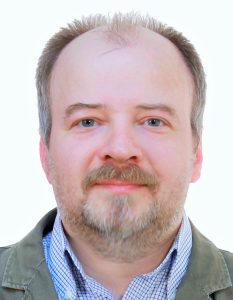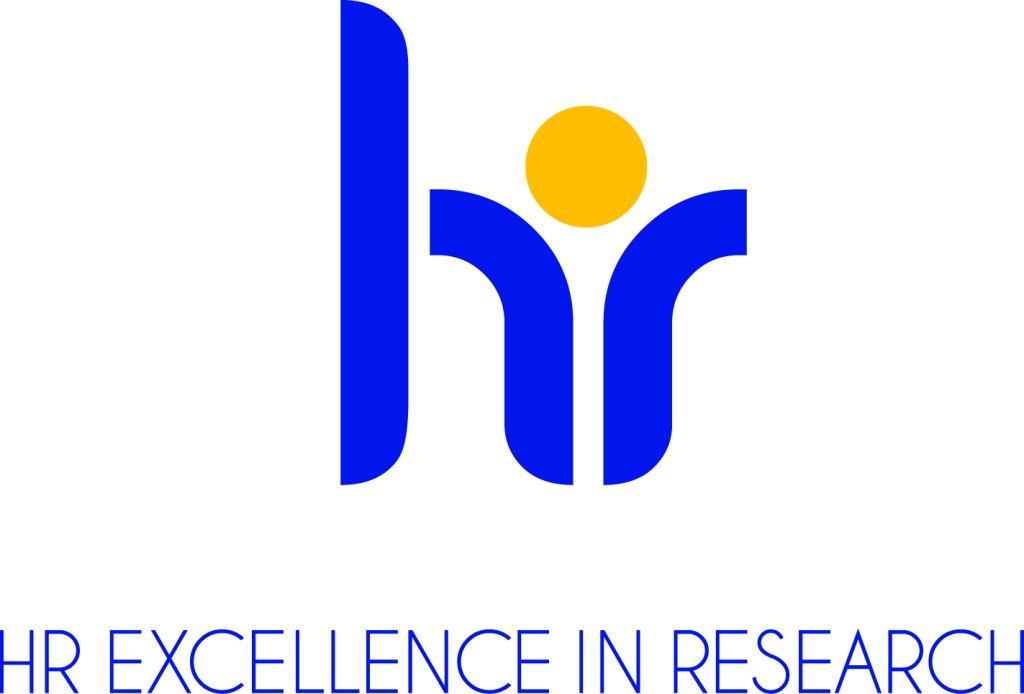prof. Mikhail Khorkov
10.10.2023 | 10.10.2023
| Old and Rare Book Studies Research Unit
Room A16 Office hours: Thursdays 10:00–12:00 or by appointment via e-mail E-mail: mikhail.khorkov@ihnpan.pl ORCID: 0000-0001-6777-632X Scopus Author ID: 36189867200 Web of Sciences Researcher ID: R-6774-2016 From 1 May 2022 PASIFIC Fellow: https://pasific.pan.pl/mikhail-khorkov/ |
 |
Research fields
- Ancient and Medieval Intellectual History and Philosophy
- Medieval Scholastics
- German and Dutch Medieval Spiritual and Intellectual Texts
- Philosophical Archives and Manuscripts
Education
- 1987–1993 MA History (Ancient and medieval history and teacher training), Faculty of History, University of Moscow (MPGU).
- 1993–1996 PhD (Cand. Sc.) study, Institute of Philosophy, Russian Academy of Sciences, Moscow.
- 1997–1998 Postgraduate study of philosophy and history of science and technology (certificate), Department of Philosophy, University of Karlsruhe (TU Karlsruhe, now KIT), Karlsruhe.
- 1999 Candidate of Sciences (PhD equivalent degree), Institute of Philosophy, Russian Academy of Sciences, Moscow.
Degrees and qualifications
- Master’s degree, history, area of specialization: ancient and medieval history (1993)
- Candidate of Sciences (PhD equivalent degree, 1999)
- Associate Professor (2005)
Previous Research Positions (last 7 years)
- COFUND Fellow at the Max Weber Centre for Advanced Cultural and Social Studies at the University of Erfurt, Germany (September 2016 – August 2017).
- Senior fellow at the Polish Institute of Advanced Studies, Polish Academy of Sciences (October 2017 – July 2018).
- Johan Peter Falck Fellow, Swedish Collegium for Advanced Study, Uppsala, Sweden (September 2019 – August 2020).
Visiting lectures and courses at other universities
- University of Bremen, Germany (October-November 2002)
- University of Salento, Lecce, Italy (February 2010)
- University of Erfurt, Germany (May-June 2005, April 2011, April-August 2017)
Research grants and international mobility
- DAAD-Forschungsstipendium, Hochschule für Philosophie München, Munich, Germany (October-December 2000),
- ÖAD-Forschungsstipendium, Institut für Philosophie, Katholisch-Theologische Fakultät, Universität Salzburg, Austria (January-May 2001),
- Goethe-Forschungsstipendium, Theologische Fakultät, Jena, Germany (September-November 2003),
- Herzog-Ernst-Forschungsstipendium der Fritz Thyssen Stiftung, Gotha, Germany (May-July 2005),
- Paul-Celan-Gaststipendium, Vienna, Austria (July-September 2006),
- Amplonius-Forschungsstipendium, Katholisch-Theologische Fakultät, Universität Erfurt, Germany (April-June 2007),
- Forschungsstipendium der Alexander von Humboldt-Stiftung, Thomas-Institut, Universität zu Köln, Köln, Germany (August 2007 – May 2009),
- Forschungsstipendium am Deutschen Literaturarchiv (DLA) in Marbach, Germany (July 2011).
Memberships in professional associations
- Member of the International Society for the Study of Medieval Philosophy / Société Internationale pour l’Étude de la Philosophie Médiévale (SIEPM); 2012-2022 Member of the Board (assessor).
- Vice President of the Max Scheler Society / Max-Scheler-Gesellschaft (MSG / since March 2018).
- Member of the Helmuth Plessner Society / Helmuth-Plessner-Gesellschaft (HPG).
- Member of the Max Scheler Society of North America, USA and Canada.
- Member of the Meister Eckhart Society / Meister-Eckhart-Gesellschaft (MEG).
- Member of the Society for Medieval and Renaissance Philosophy / Gesellschaftfür Philosophie des Mittelalters und der Renaissance (GPMR).
Memberships in the Editorial / Advisory Board
- Bulletin de Philosophie Médiévale (SIEPM and Brepols, Turnhout, Belgium), 2012-2022;
- Rencontres de Philosophie médiévale (SIEPM and Brepols, Turnhout, Belgium), 2012-2022;
- Studia Antyczne i Mediewistyczne (IFiS PAN, Warsaw);
- Scheler Studies (Verlag Traugott Bautz, Nordhausen, Germany);
- Studies in Brentano and the Aristotelian Tradition (Triest);
- Verbum (St. Petersburg);
- Horizon: Studies in Phenomenology (St. Petersburg);
- ESSE (St. Petersburg).
PhD Thesis Supervision
- 2006–2010 Supervisor, doctorate thesis by Olga Kuznetsova “Personalism in the Context of European Philosophy of the 20th Century”, cotutela-doctorate PFUR, Moscow, Russia – University Paris-8, France.
- 2016–2023 Supervisor, doctorate thesis by Arina Simonian “The Doctrine of the Soul in the Context of Late Medieval German Spiritual Literature”. A paper entitled “Ein Eckhartzitat als locus communis im Kontext einer mystischen Messerklärung,” in: Meister-Eckhart-Jahrbuch 16 (2022), 273-297, based on research from this doctorate, was honoured in 2023 with an award named after Jacqueline Hamesse: https://hiw.kuleuven.be/siepm/awards
Peer-Reviewed Publications (last 5 years)
- Ratio und Affekt in der mystischen Theologie des Spätmittelalters, in: Meister-Eckhart-Jahrbuch 13 (2019): Von Meister Eckhart bis Martin Luther, 69-87.
- Why does the intellect see wisdom? A Platonic figure of thought in De sapientia of Nicholas of Cusa, in: Freiburger Zeitschrift für Philosophie und Theologie 66/1 (2019), 8-18.
- Erfurt Carthusian Treatises of the Fifteenth Century on Mystical Theology: Echoes of Controversies within the Carthusian Order, or Evidence of a Dialogue with Nicholas of Cusa? in: Przegląd Tomistyczny 25 (2019), 217-240.
- A New Morality for the “Age of Leveling”? in: Scheler und das asiatische Denken im Weltalter des Ausgleichs, hrsg. von Christopher Gutland, Xiaogang Yang, Wei Zhang (Scheleriana 6), Nordhausen: Verlag Traugott Bautz, 2019, 91-101.
- Between Mystical Theology and a New Model of Knowledge: The Works of Nicholas of Cusa in the Library of the Erfurt Charterhouse, in: Die Bibliothek – The Library – La Bibliothèque: Denkräume und Wissensordnungen – Spaces of Thought and Knowledge Systems, eds. Andreas Speer and Lars Reuke (Miscellanea Mediaevalia, Veröffentlichungen des Thomas-Instituts der Universität Köln, 41), Berlin: De Gruyter 2020, 676-690.
- Laudatio for Dr. Lukáš Lička, in: Bulletin de Philosophie Médiévale 62 (2020), 439-441.
- Technik und Leben: Zum Begriff der „Technik des Lebens“ bei Max Scheler, in: Wurzeln der Technikphilosophie: Max Schelers Technik- und Zivilisationskritik in unterschiedlichen gesellschaftlichen Kontexten, hrsg. von Zachary Davis, Stephan Fritz und Michael Gabel (Scheleriana 5), Nordhausen: Verlag Traugott Bautz, 2020, 155-163.
- The reception of the works of Nicholas of Cusa in manuscripts from the Erfurt Charterhouse in the fifteenth century, in: Homo–Natura–Mundus: Human Beings and Their Relationships. Proceedings of the XIV International Congress of the Société Internationale pour l’Étude de la Philosophie Médiévale, eds. Roberto Hofmeister Pich, Alfredo Carlos Storck, and Alfredo Santiago Culleton (Rencontres de Philosophie médiévale 22), Turnhout: Brepols 2021, 817-828.
- Kontroversen um die mystische Theologie des Pseudo-Dionysius Areopagita in der Erfurter Kartause im 15. Jahrhundert, in: The Dionysian Traditions, eds. Georgi Kapriev (Rencontres de Philosophie médiévale 23), Turnhout: Brepols 2021, 295-320.
- Nicholas of Cusa’s marginalia to Plato’s dialogue Phaedrus as one of the forgotten sources of the supposed Cusanian Platonism, in: Centri e periferie nella storia del pensiero filosofico – Centers and peripheries in the history of philosophical thought, eds. Diana Di Segni, Nadia Bray, Fiorella Retucci, Elisa Rubino, Turnhout: Brepols 2021 (Rencontres de Philosophie Médiévale 24), 157-178 (includes an edition of Nicholas of Cusa’s marginalia to Phaedrus, 169-177).
- Verständnis der Weisheit und Streit über die mystische Theologie bei den Kartäusern im 15. Jahrhundert, in: Das 15. Jahrhundert, hrsg. von Günter Frank, Franz Fuchs und Mathias Herweg (Melanchthon-Schriften der Stadt Bretten 15), Stuttgart–Bad Cannstatt: Frommann-Holzboog 2021, 471-489.
- Max Scheler und Paul Ludwig Landsberg: Lehrer-Schüler-Beziehungen und der Kölner Kontext der Entstehung der philosophischen Anthropologie zwischen Wissenssoziologie und Philosophiegeschichte, in: Philosophical Anthropology as an Interdisciplinary Praxis: Max Scheler, Helmuth Plessner, and Nicolai Hartmann in Cologne – Historical and Systematic Perspectives, eds. by Erik Norman Dzwiza-Ohlsen, Andreas Speer, Leiden, Paderborn: Brill, Mentis 2021, 44-57.
- On the question of authorship of the Little Book of Love (Minnebüchlein) in the light of its Latin version, in: Indo-European Linguistics and Classical Philology XXV (1), Proceedings of the 25th Conference in Memory of Professor Joseph M. Tronsky, ed. by Nikolai N. Kazansky, St. Petersburg: Institute for Linguistic Studies, RAS, 2021, 1153-1164.
- Struktur und Genese. Zur Entstehungsgeschichte der Handschrift F. 201, Nr. 35 der Russischen Staatsbibliothek in Moskau, in: Deutsche Kultur in russischen Buch- und Handschriftenbeständen. Beiträge zur Tagung des deutsch-russischen Arbeitskreises vom 16./17. April 2018 an der Lomonossov-Universität Moskau, hrsg. von Natalija Ganina, Daniel Könitz, Catherine Squires, Jürgen Wolf (Deutsch-russische Forschungen zur Buchgeschichte, Band 5 = Sonderschr. Akad. gemeinn. Wiss. Erfurt 52), Erfurt: Franz Steiner Verlag, Verlag der Akademie gemeinnütziger Wissenschaften zu Erfurt 2022, 219-227.
- Konflikt, Toleranz und Dialog zwischen orthodoxen und katholischen Christen und Muslimen in den polemischen Schriften von Maxim Grek, in: Tolerance and Concepts of Otherness in Medieval Philosophy, ed. by Michael W. Dunne and Susan Gottlöber (Rencontres de Philosophie Médiévale 25), Turnhout: Brepols 2022, 55-80.
- Max Scheler and Concepts of the Tragic in European Philosophy of the Twentieth Century, in: Max Scheler in Dialogue, ed. by Susan Gottlöber (Contributions to Phenomenology 118), Cham: Springer 2022, 161-171.
- Meister Eckhart im polnischen Rundfunk in einer Ära des Wandels: Józef Tischners phänomenologische Interpretation der Reden der Unterweisung, in: Meister-Eckhart-Jahrbuch 17 (2023), 269-290.


 Wróć
Wróć
